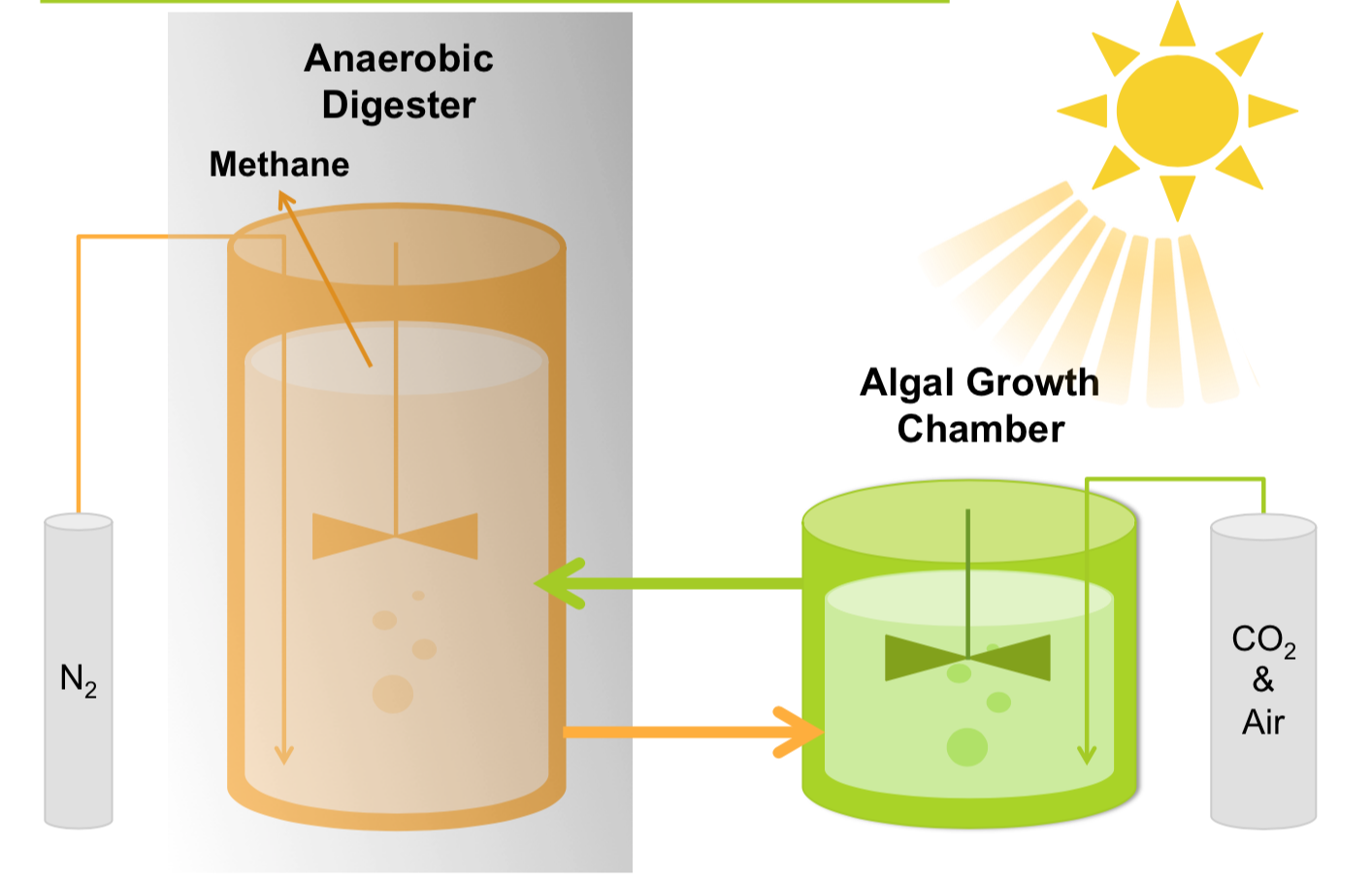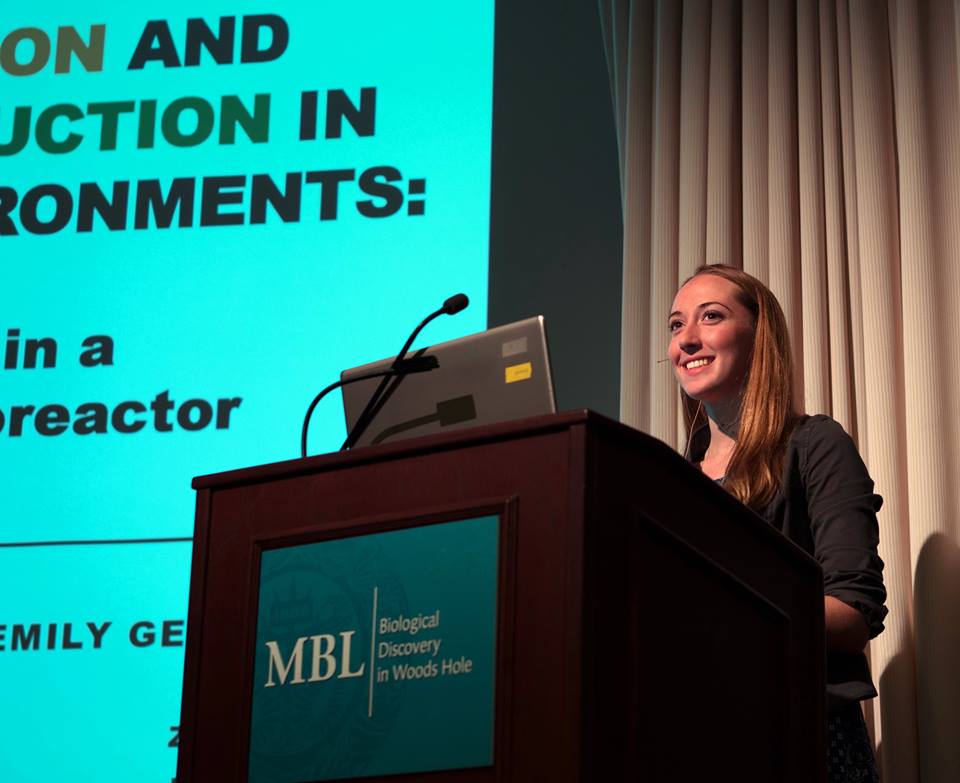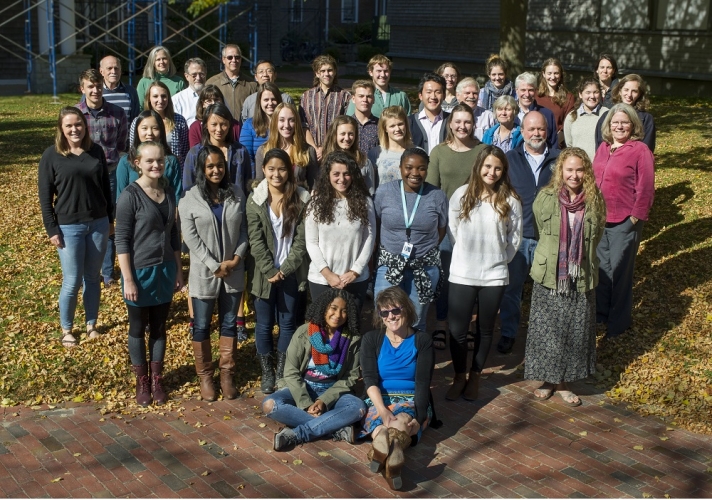Marine Biological Laboratory / Independent Research Project
Algae Bioreactor
Improve methane output of anaerobic bioreactor fueled by algae (closed loop system)
Completed as a part of the MBL Semester in Environmental Science
Watch me present my work at the 2015 SES Student Symposium, timestamp = 01:38:53
While at the Semester in Environmental Science at the Marine Biological Laboratory (MBL), I had the opportunity to develop my own independent research project to work on for the last 5 weeks of the semester.
With Dr. Zoe Cardon and Dr. Joseph Vallino, I developed a project to investigate why their Algae-to-Methane bioreactor had dropped in methane production in recent weeks.
Question: What affects methane production in the Algae Bioreactor?
• H1: glucose stimulates decomposition and methane production (priming)
• H2: acetate stimulates methane production (direct)
• H3: autoclaving stimulates decomposition and methane production
I used incubations and destructively harvested incubation tubes for each treatment at 5 time points.
Findings:
- Trends show that autoclaved algae could make more methane
- Autoclaved algae solution produced more CO2 – suggesting that there was more decomposition
- Acetate and glucose did not make more methane
- Glucose & acetate inhibited methane production
- Large effect for small amount added
- CO2 plateaus and until last time point - shows that methanogens begin using CO2
Marine Biological Laboratory's (MBL) Semester in Environmental Science (SES): - one of the best semesters of my undergraduate career! https://www.mbl.edu/ses/



